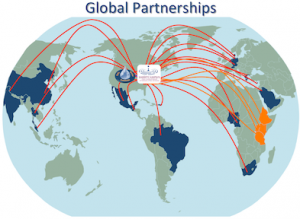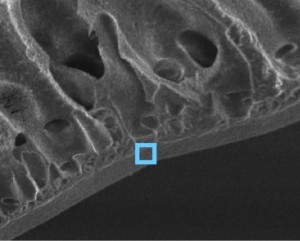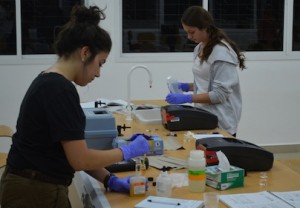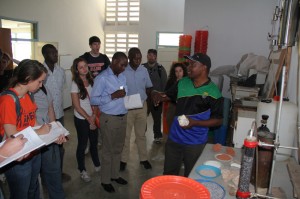Opportunities
 The Safe Global Water Institute (SGWI) is a consortium of global centers of excellence in research, education, and regional stakeholders working across the boundaries of Water and Health, Water and Food, Water and Energy, and Water and Climate Chan ge. United, we are working to overcome the scientific, technological, educational, and socio-economic global challenges to providing safe water and improved sanitation
The Safe Global Water Institute (SGWI) is a consortium of global centers of excellence in research, education, and regional stakeholders working across the boundaries of Water and Health, Water and Food, Water and Energy, and Water and Climate Chan ge. United, we are working to overcome the scientific, technological, educational, and socio-economic global challenges to providing safe water and improved sanitation

Sponsored Research
There are many opportunities for industry to engage with our researchers and students through sponsored research, applied research projects, participation in our research Institute, or the pursuit of collaborative funding opportunities. Research partnerhsips at the Institute are developing materials and membranes, solar-driven bioproccesses and new water treatments, just to name a few. Become a partner with SGWI and help develop new technologies for clean water and sustainability.

Internships & Fellowships
Fellowships and internships are a big opportunity for companies seeking to employee our exceptional students. The Institute is housed at the University of Illinois, one of the top departments of Environmental Engineering in the nation. As part of SGWI activities, our students work on design projects related to water treatment and developing sustainable safe water and sanitation solutions for targeted communities collaborating with college students in Tanzania, Ethiopia, Kenya and Uganda. Help support these student programs and recruit the students who will be professionals in your industry.

In-Country Projects (East Africa)
The Institute is looking to secure support for the Institution’s international test-bed programs in the East African regions. The Institute currently partners with NGOs and local government in East Africa which is critical to successful collaborations and improvements in the developing regions. To continue these established relationships and test-bed programs, the Institute needes funding. This funding will bring together researchers, stakeholders, and decision-makers to overcome current and pending water and sanitation challenges in Sub-Saharan Africa—one of the regions most severely affected by these problems.